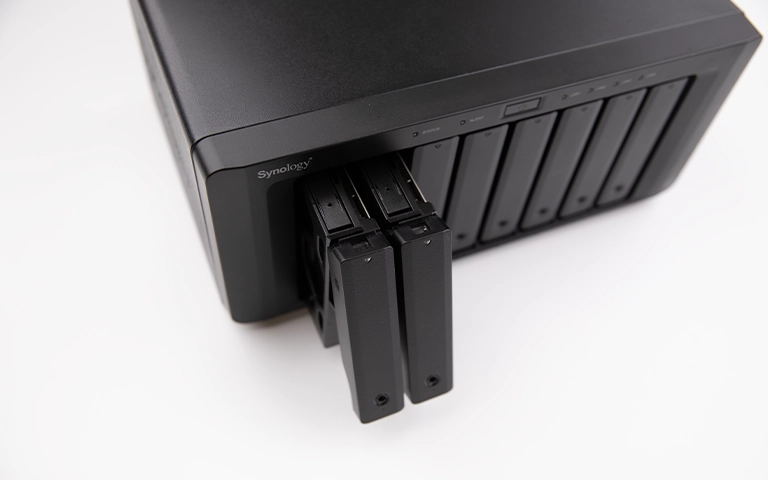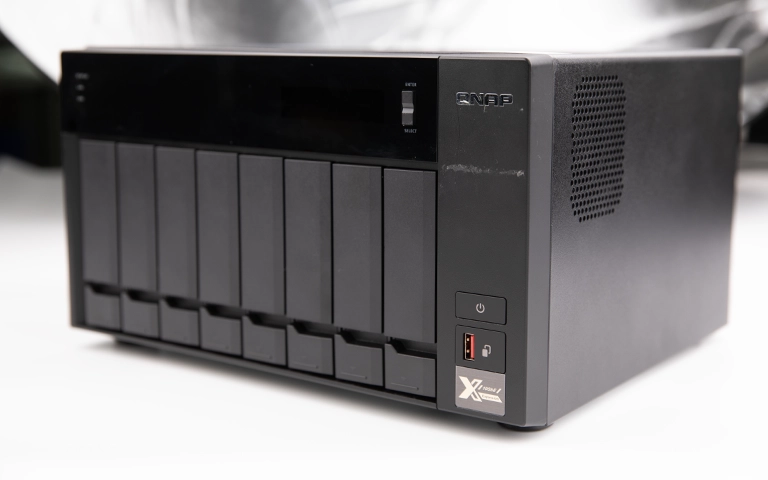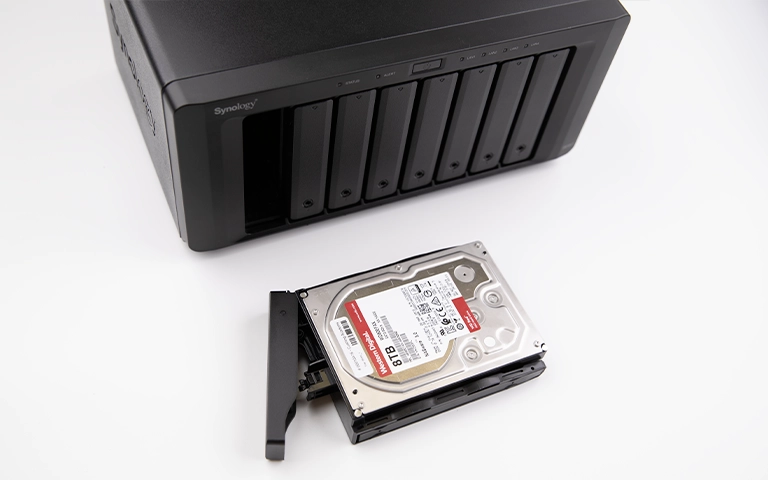In today’s data-driven world, every business depends on quick and secure access to information. From customer records to project files, having a centralized storage system is essential for collaboration and efficiency.
NAS (Network Attached Storage) provides a simple and scalable way to store, organize, and share data across your network. Whether you run a small office or a growing enterprise, NAS ensures that your files are always available and protected from unexpected failures.

What Is NAS Storage and How It Works
NAS, or Network Attached Storage, is a dedicated file storage device that connects to your local network. It allows multiple users and devices to access and share data from one central location.
Unlike external drives that connect directly to one computer, NAS functions like a private cloud for your office. Employees can store, edit, and back up files simultaneously without needing internet access.
Most NAS devices include multiple hard drives arranged in RAID configurations. This setup provides better performance and protects data from drive failures, ensuring your business information stays safe and accessible.
You can explore more about available NAS RAID Options to find the best setup for your business environment.
Top Benefits of NAS for Businesses
NAS offers several advantages that make it a smart investment for any company managing growing data needs.
- Centralized File Storage – Keeps all business data in one secure location, reducing file duplication and confusion.
- Easy File Sharing – Team members can access and edit files from any connected device on the same network.
- Data Protection with RAID – Many NAS systems use RAID configurations to prevent data loss in case of drive failure.
- Scalable Capacity – As your business grows, you can add more drives or upgrade your NAS to increase storage space.
- Remote Access – Many NAS units support cloud-like access, letting you reach files safely from anywhere.
- Cost-Effective Solution – NAS provides enterprise-level storage performance without the high costs of dedicated servers.

NAS vs Traditional File Servers
Both NAS and traditional file servers are used to store and share business data, but they differ in cost, management, and scalability.
NAS offers flexibility and scalability that traditional servers lack, especially for small and medium-sized businesses. To find the right system, compare popular models in QNAP vs Synology and learn how each brand meets business storage needs.
How to Choose the Right NAS for Your Business
Selecting the right NAS depends on your company’s size, workflow, and data requirements. Before investing, consider the following key factors:
Choose a NAS that meets your current needs but can also grow with your business. Look for multi-bay models that allow drive expansion without downtime.
Select a RAID setup that matches your balance between speed and data protection. For example, RAID 5 or RAID 6 provides redundancy, while RAID 10 offers better performance.
Assess how many users will access the NAS and the types of files being stored. Businesses handling large multimedia or database files should prioritize higher-speed processors and more RAM.
A reliable NAS should support automatic backups and off-site replication. However, even the best systems can fail. If that happens, review our guide on NAS Failure and Recovery to understand how professionals restore access to critical business data.
Ensure the NAS supports encryption, user access controls, and secure remote login. Protecting sensitive business data should always be a top priority.

Common NAS Issues and Data Loss Risks
NAS systems are dependable, but failures can still occur. Knowing the risks helps prevent permanent data loss.
Drive Failures – A single failed drive can affect performance or cause data loss. Review NAS Drive Failure Rates to understand the risks.
RAID Degradation – If a drive isn’t rebuilt properly, the array becomes vulnerable.
Power Surges – Sudden outages or surges can corrupt files or damage the NAS controller.
Human Error – Accidental deletion or formatting can make data inaccessible, but recovery is often possible.
Firmware Issues – Failed updates or wrong settings can cause boot problems or data corruption.
If your NAS stops responding, avoid DIY repairs. At RAID Recovery Services, we safely recover data from failed NAS systems. See how in our NAS Data Recovery Case.
Fast turnaround times for business-critical data
Protecting Your Business Data with RAID Recovery Services
A NAS system is one of the most efficient ways to store and share business data, but even the most reliable setups can fail. Hardware issues, RAID corruption, or accidental deletion can lead to costly downtime if not handled properly.
At RAID Recovery Services, we specialize in restoring data from all NAS brands and RAID configurations. Our engineers use advanced recovery methods in secure lab environments to retrieve data from damaged drives, failed arrays, or inaccessible systems.
If your NAS becomes unreadable or shows signs of failure, disconnect it immediately and contact our team. We can help diagnose the issue and recover your files quickly and safely so your business operations can continue without disruption.

Conclusion
NAS storage gives your business a dependable, scalable, and secure way to manage growing data needs. It improves collaboration, protects valuable files, and ensures quick access for every team member.
Still, no storage system is immune to failure. When data loss occurs, professional recovery is the safest solution.
Contact RAID Recovery Services today for expert evaluation and fast, secure NAS data recovery.
Trust the experts with proven results
Frequently Asked Questions
What makes NAS storage ideal for businesses?
NAS provides centralized, secure file storage accessible from multiple devices. It improves collaboration, supports automated backups, and offers redundancy through RAID configurations.
How is NAS different from a regular file server?
NAS is simpler to set up and maintain. It’s built specifically for file sharing and data storage, while traditional servers require more IT resources and often handle multiple roles beyond storage.
Can NAS protect against drive failures?
Yes. Most NAS units use RAID, which distributes data and parity across drives. If one drive fails, your files remain accessible until the array is rebuilt.
What should I do if my NAS becomes inaccessible?
Avoid reboots or DIY repairs. Power it down and contact a recovery professional.
Does RAID Recovery Services recover data from any NAS brand?
Yes. We handle all major NAS systems, including Synology, QNAP, Buffalo, and more. Our engineers can recover data from any configuration, even after complex RAID or hardware failures.